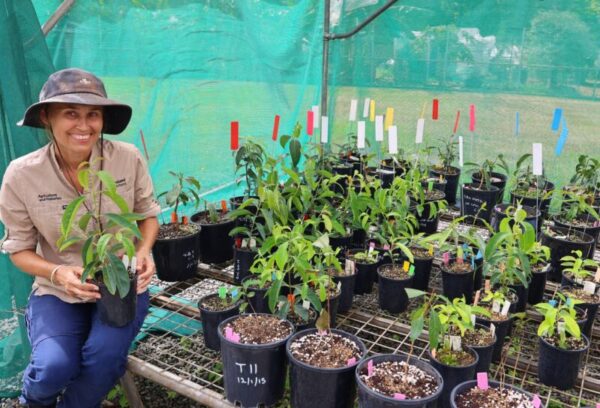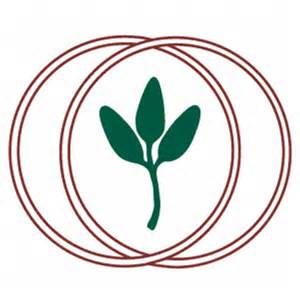Myrtle Rust Management for Practitioners - Open Series

Session 6 of the series will be on:
National Plant Biosecurity and Sustainable Plant Production
The presenter will be John McDonald, who is the Director of RDE & Biosecurity at Greenlife Industry Australia. He will present on the national plant biosecurity system and response management, including:
Responding to an emergency plant pest incursion
Pesticide Minor Use Permits (MUPs)
– What are MUPs
– How to apply for a MUP
Nursery Production Sustainability
– Best Management Practice
– Environmental & Natural Resource Management
– Plant Protection and Biosecurity
Date
Thursday 13 November 2025 2:00 PM – 3:00 PM (AEDT)
Location
Online event access details will be provided by the event organiser
Register here (via Trybooking)
About the series
There is a need for horticulturists and practitioners managing Myrtle Rust susceptible collections to collaborate, share ideas and workshop problems.
 To address this the ANPC, UNSW and the BGANZ Collections and Records Management group (BCARM) are collaborating to co-ordinate a quarterly series of free, informal virtual get togethers.
To address this the ANPC, UNSW and the BGANZ Collections and Records Management group (BCARM) are collaborating to co-ordinate a quarterly series of free, informal virtual get togethers.
This series is exclusively focused on practical aspects of managing and maintaining a conservation collection of Myrtle Rust susceptible species and has an open forum structure. It is open to any practitioners across Australia and Aotearoa New Zealand managing collections impacted by Myrtle Rust including local council nurseries.
Previous sessions
Session 1 on 22 February 2024 focused on “Fundamentals of managing a Myrtle Rust sensitive collection“. You can view Bob Makinson’s introductory talk about Myrtle Rust in Australia and Veronica Viler’s talk on managing Myrtle Rust sensitive collections below.
Session 2 on 16 May 2024 was about “Pest and Disease Control – Chemical Use and Permits” where Veronica presented on ‘Chemical and Cultural methods of Myrtle Rust Management’ which is also available below.
Session 3 on 29 August 2024 was on “Monitoring and Collecting from Wild Populations of Myrtle Rust Susceptible Species“. Craig Stehn from NSW DCCEEW shared his experience in surveying, monitoring and collecting from wild populations of Myrtle Rust impacted species. Craig’s talk is also available to view below.
Session 4 on 5 December 2024 focused on “Local government enabling community-led recovery of Myrtle Rust impacted species”. Emma Simpkins (Senior Regional Advisor Flora) and Rebekah Fuller (Senior Plant Pathogens Advisor) from Auckland Council discussed the actions implemented by local government to support threatened Myrtaceae in Auckland, primarily by engaging community to build capacity to support species and ecosystem recovery. Their conservation actions include funding mana whenua (indigenous people) and community groups to lead monitoring of Lophomyrtus obcordata (rōhutu) and Syzygium maire (maire tawake) populations and carry out fungicide treatments in order to collect seed for propagation, establishing ex situ collections of threatened species including rōhutu and rātā moehau (Metrosideros bartlettii), creating awareness of Myrtle Rust through workshops and training, and advocating for nursery suppliers to have a nursery biosecurity accreditation (Plant Pass) to ensure healthy plants are used in restoration. Their presentation can be found below.
Session 5 on 24 April 2025 was on “Getting a Myrtle Rust conservation program going – the practicalities“. Brandan Espe from James Cook University presented on how TropEco at JCU established its Myrtle Rust conservation program. The focus was on the tools and steps required to get such a program off the ground, and the challenges of ensuring ongoing success. Brandon curates the JCU living collections and manages the TropEco program, with the Townsville campus alone being over 380Ha, having over 1300 taxa and well over triple the accessions recorded to date and growing. He manages the Grounds and Environment teams who care for the gardens, natural ecosystems, nurseries and wildlife. He oversees plant selection and landscape designs for capital and operational works across the University as well as botanic conservation and educational engagement. He started the JCU TropEco Myrtle Rust conservation program in his former role as Environmental Officer. A recording of Brandan’s presentation can be found below.
For more information on this series, please email the ANPC’s Myrtle Rust Recovery Project Manager Pip Walsh.
For more information about Myrtle Rust visit the dedicated ANPC resource page.
Image: Tracey Menzies with Native Guava potted collections at the DAF Gympie nursery. Credit: Alison Dillon DAF
Presentations from Session 1
Presentation from Session 2
Presentation from Session 3
Presentation from Session 4
Presentation from Session 5
